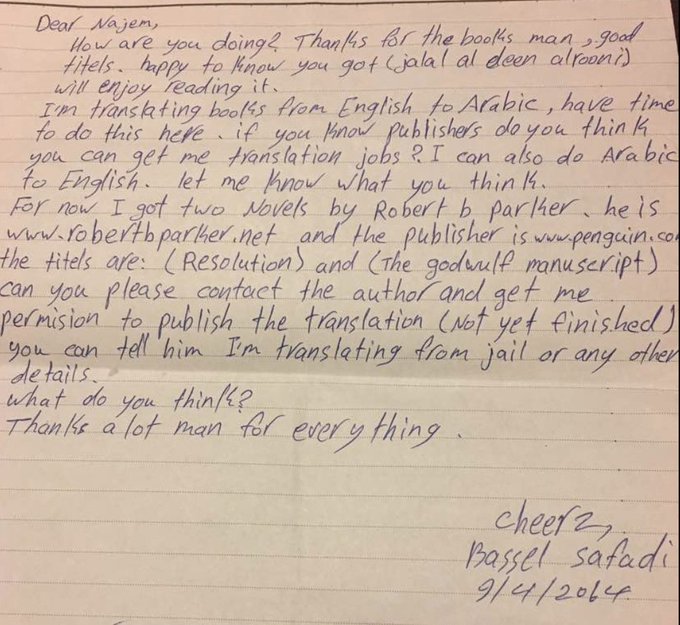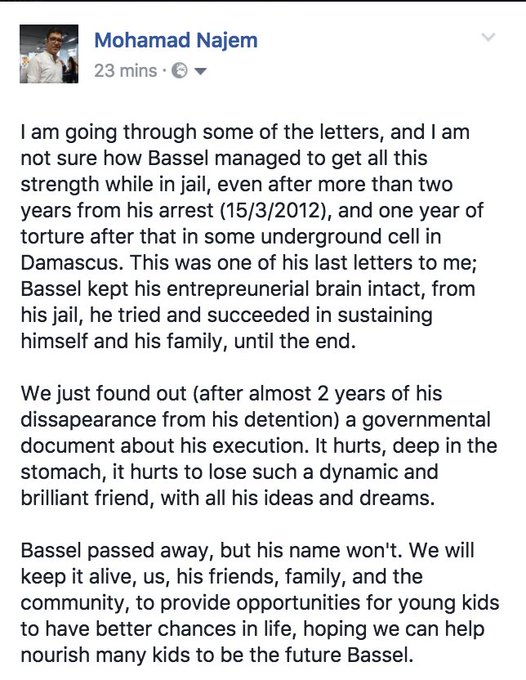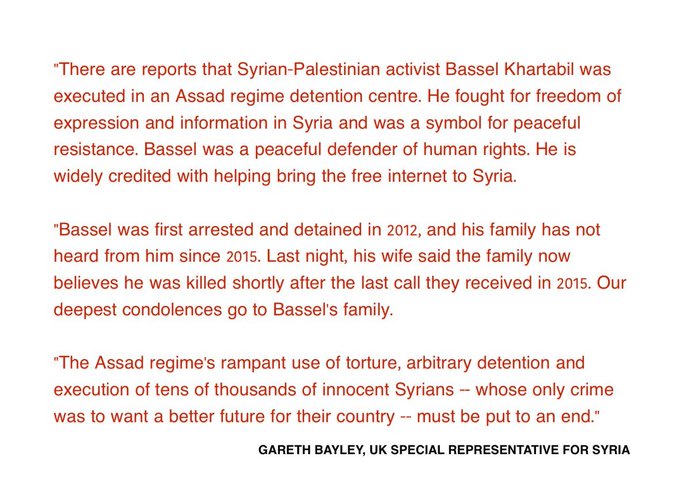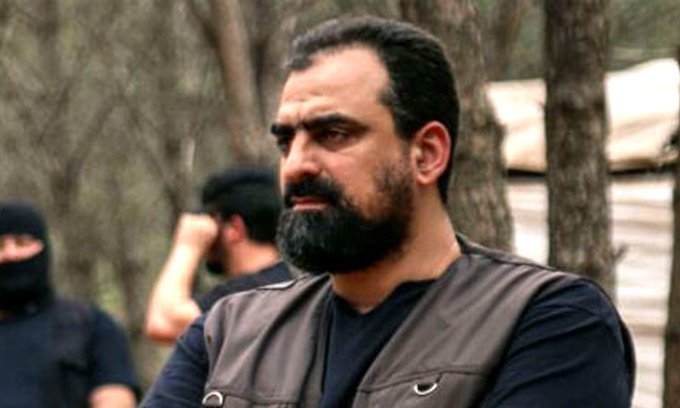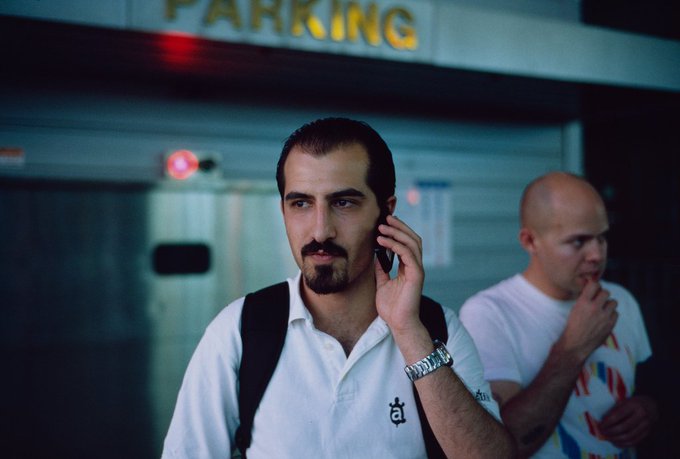Saturday, August 5, 2017
Friday, August 4, 2017
Can the US defeat the Taliban in Afghanistan?
COMMENT
The very simple, yet determined, Taliban have proved to be far smarter in their fighting strategies than the so-called Syrian "revolutionaries."
The facts speak for themselves: the Syrian "revolution" is pretty much over, while the Taliban continue to make this the longest war for the US, with no end in sight. The US, just like the Soviets before, is going to be driven out.
How can the Taliban outsmart and defeat such powerful enemies?
They have studied history and know their strengths and weaknesses. They rely on dynamic guerrilla war and always surprise the enemy. Most importantly they rely on themselves and have no illusions about a "political solution."
The Syrians failed because they reused to learn.
Can the United States defeat the Taliban in Afghanistan? Security is worsening as the Taliban continue to control large parts of the country.
The US war against the Taliban in Afghanistan began soon after the 9/11 attacks in 2001. Sixteen years on, what progress has been made?
A new report suggests very little. The security situation is only getting worse by the day. About 500 Afghan soldiers are being killed every month and the United Nationssays civilian casualties are at a record high.
Much of the Taliban's funding comes from opium poppies and the illegal drug trade. The value of opium has doubled to more than $3bn in one year.
The US has pumped more than $700bn into Afghanistan since the beginning of the war - a report suggests the US does not even know how the money is being spent.
So what's the White House strategy now?
Presenter: Martine Dennis
Guests:
Haroun Mir - Cofounder of Afghanistan's Centre for Research and Policy Studies.
David Sedney - Former deputy US assistant secretary of defense for Afghanistan & Pakistan.
Omar Samad - Former senior adviser to the chief executive of Afghanistan, Abdullah Abdullah.
Source: Al Jazeera
Thursday, August 3, 2017
Leaked Trump transcripts show his incoherent, ill-informed narcissism
The leak of conversations between the US president and the leaders of Mexico and Australia may well be a cry for help from within the administration
The Guardian

Link
The Guardian

Link
One of the most significant aspects of the published transcripts of Donald Trump’s conversations with his Mexican and Australian counterparts is the fact they were leaked.
Private discussions between world leaders are kept secret so they can speak their minds and establish trust. The leaks will make it harder for the US to carry out high-level diplomacy and resolve serious crises, not just under Trump but potentially far beyond his presidency.
The publication of transcripts by the Washington Post is the latest of many signs that established norms are breaking down inside the administration, with far-reaching and unpredictable implications.
Such documents should have been very closely held, accessible to only a few senior officials. Their publication reflects the intensity of the war inside the White House between rival factions – and a reminder that, for all his well-advertised toughness, the new chief of staff, John Kelly, is going to find it very hard to impose discipline on an institution that is dysfunctional from the top down.
It is quite possible that the leaker was motivated by anxiety about the national security implications of Trump’s erratic leadership – that the leak is a cry for help from inside the administration.
The transcripts of his conversations with Enrique Peña Nieto and Malcolm Turnbull show the president to be no more coherent in private than he is public: ill-informed – even about a major attack on US soil – and narcissistic to the point of absurdity.
“I am the world’s greatest person,” he tells Turnbull, and boasts to his fellow world leaders about the size of the crowds who turn out to hear him speak. Maintaining his image as a strong leader in the eyes of his supporters emerges, again and again in the course of the conversations, as an overarching priority – over and above the maintenance of strong relations with allied countries.
The transcripts serve as a reminder that being “nice” to Trump counts for more than long-term strategic alliances. At one point in his castigation of Turnbull, he compared him unfavourably with Vladimir Putin, with whom Trump had recently spoken.
“Putin was a pleasant call. This is ridiculous,” Trump said shortly before ending the call abruptly. In private as in public, Trump’s praise for the Russian president is an unshakeable constant.
Perhaps the least surprising upshot of the release of the transcripts is the confirmation that the president and his administration deliberately misled the public about them. When the Washington Post published an account of the Turnbull conversation in early February, Trump tweeted that it had been a “very civil conversation that FAKE NEWS media lied about”.
As has happened repeatedly over the course of the administration, the emergence of the facts has upheld the news reports, and shown the denials to be fake. Trump repeatedly tries to coach Peña Nieto on how to mislead the press, urging him to stop repeating Mexico’s refusal to pay for Trump’s proposed border wall.
The wall and its supposed Mexican funding was a mainstay of Trump campaign speeches. In private, Trump tells the Mexican leader to stop reminding voters of a promise the new president cannot fulfil. He argues the wall and its financing is “the least important thing that we are talking about” and says he is in a “political bind” because he had “been talking about it for a two-year period”.
Similar themes recur in the Turnbull conversation. Here, the divisive issue is an agreement that the Obama administration struck with Australia to consider accepting 1,250 refugees, mostly from Muslim countries, being detained by Australia on Pacific islands after trying to enter the country by boat. In return, Australia would host Latin American migrants.
Trump is furious that abiding by the agreement could harm his image among his voters, just after he had signed his first abortive executive order cutting the acceptance of refugees from Syria and suspending travel from a list of seven mainly Muslim countries.
“This is going to kill me. I am the world’s greatest person that does not want to let people into the country,” Trump says. “It makes me look so bad, and I have only been here a week.”
The fact that the refugees in question are from Muslim countries is the key for Trump. “I hate taking these people. I guarantee you they are bad,” he said.
Turnbull pleads with him to stick to the agreement for the sake of the bilateral relationship and in the end, Trump agrees he does not have much choice, but does so with little grace, aiming a personal slight at the Australian, saying he had “brokered many a stupid deal in business”.
For all Turnbull’s attempts to smooth over their differences, Trump is clearly in a foul temper by the end of the discussion, and broader bilateral issues are shelved. When Turnbull asks to discuss Syria and North Korea – two global crises in which their two countries are strategic partners – Trump is not interested and ends the call.
Wednesday, August 2, 2017
ارتياح إسرائيلي للتعاطي السعودي مع أحداث الأقصى
صالح النعامي

Link
في ظل الجدل الذي أثاره الإعلان الذي صدر عن الديوان الملكي السعودي، والذي أشار إلى دور للملك سلمان بن عبد العزيز في إنهاء أحداث المسجد الأقصى الأخيرة وأشاد بإسهام تدخّله الحاسم في إقناع إسرائيل بإزالة البوابات الإلكترونية على مداخل الأقصى، فإن مراكز أبحاث ووسائل إعلام إسرائيلية قدّمت صورة مخالفة تماماً لدور الرياض خلال هذه الأحداث. وتراوح توصيف معلّقين وباحثين إسرائيليين للموقف السعودي من أحداث الأقصى بين الصمت أو تعمّد الرياض عدم تأييد مطالب الفلسطينيين، في حين ذهب البعض إلى أن السعودية تبنّت من وراء الكواليس موقفاً مسانداً للإجراءات الأمنية التي اتخذتها حكومة بنيامين نتنياهو في الأقصى.
وجزم الباحث في "مركز يروشليم لدراسة الجمهور والدولة" اليميني، بنحاس عنبري، بأن السعودية حرصت على عدم دعم الفلسطينيين في نضالهم الأخير ضد الإجراءات الإسرائيلية التي استهدفت المسجد الأقصى، مشيراً إلى أن السلوك السعودي ينبع بالأساس من الخوف من أن تمهّد الهبّة الفلسطينية لتفجّر موجة جديدة من الربيع العربي. وفي مقال نشره موقع المركز، الثلاثاء الماضي، قال عنبري إن السعودية خشيت أن تستغل جماعة "الإخوان المسلمين" أحداث الأقصى في إحداث تغييرات جذرية على النظام الإقليمي، معتبراً أن الرياض خافت أن يفضي تجمّع الفلسطينيين المحتجين على الإجراءات الإسرائيلية أمام "باب الأسباط" إلى ولادة "ميدان تحرير" جديد في قلب القدس، ينتقل تأثيره لاحقاً إلى العواصم العربية.
وذهب عنبري إلى أن الرياض انطلقت من افتراض مفاده أن السماح بتدشين "ميدان تحرير" جديد في القدس قد يمهّد "لعاصفة عربية أخرى يمكن أن تطيح بنظام حكم محمود عباس وتعصف باستقرار نظام الحكم في الأردن"، مشيراً إلى أن السعوديين لم يرغبوا في نجاح تحرك الفلسطينيين في طرد إسرائيل والأردن من الحرم القدسي. وادعى عنبري أن السعوديين خشوا من أن يكون نجاح "الإخوان المسلمين" في طرد إسرائيل من المسجد الأقصى مقدمة لنجاحهم في طرد نظام الحكم في الرياض من مكة.
ويتماشى تحليل عنبري مع ما ذهب إليه معلّق الشؤون العربية في صحيفة "هآرتس"، تسفي برئيل، الذي رأى أن نظام الحكم السعودي، كسائر الأنظمة العربية، كان معنياً باحتواء أحداث الأقصى خشية أن تفضي إلى انتشار احتجاجات في أرجاء العالمين العربي والإسلامي. وفي مقال نشرته الصحيفة أخيراً، أشار برئيل إلى أن "الأنظمة العربية خافت من إمكانية أن يفضي فقدان السيطرة على أحداث الأقصى إلى تهديد العلاقات الحساسة بينها وبين الشعوب". وشدد على أن "الأنظمة العربية تشارك إسرائيل الخوف من تفجّر انتفاضة فلسطينية ثالثة، على اعتبار أن ذلك يمكن أن يؤسس لموجة أخرى من الربيع العربي"، مشيراً إلى أن أحداث الأقصى كان "بإمكانها إطلاق حراك تضامني هائل من شأنه أن يضع الأنظمة العربية في مواجهة مباشرة مع شعوبها".
من جهته، رأى المعلّق العسكري في قناة التلفزة الإسرائيلية العاشرة، ألون بن دافيد، أن "الصمت السعودي أثناء أحداث الأقصى كان لافتاً بشكل خاص"، معتبراً أن الرئيس التركي رجب طيب أردوغان لاحظ انعدام الفعل السعودي "وسارع لملء هذا الفراغ". وفي مقال نشرته صحيفة "معاريف"، الأحد الماضي، قال بن دافيد إن "الصمت السعودي" يدل على أنه لو تصرفت حكومة نتنياهو "بحكمة" لتمكّنت من تحقيق أهدافها الأمنية في الحرم القدسي من خلال التعاون مع العائلة المالكة في الرياض وكذلك من خلال التنسيق مع نظام الحكم في عمّان والسلطة الفلسطينية. واعتبر بن دافيد أن الانقسام في العالم العربي مثّل فرصة كان يمكن لإسرائيل استغلالها لإحداث تغيير في الحرم القدسي، مستدركاً أن عدم تسلح نتنياهو بالحكمة أفضى إلى حرمان إسرائيل من استغلال هذا الواقع.
في السياق، اعتبرت صحيفة "ميكور ريشون"، في تقرير نشرته الجمعة الماضي، أن السلوك السعودي أثناء أحداث الأقصى كان "مريحاً" لإسرائيل، زاعمة أن السعوديين تفهّموا دوافع إسرائيل من وراء نصب البوابات الإلكترونية. ووفق الصحيفة، فإن السعوديين اقتنعوا بالتبريرات التي قدّمها لهم نتنياهو لتسويغ وضع البوابات الإلكترونية، مشيرة إلى أن رئيس الوزراء الإسرائيلي حرص على وضع الملك سلمان في صورة الإجراءات الإسرائيلية. وقالت الصحيفة إن نتنياهو دعا مسؤولين سعوديين لزيارة الحرم لبلورة انطباعات مباشرة عما يجري هناك، لافتاً إلى أن السلوك السعودي مناقض تماماً لسلوك أردوغان، "الذي وظّف أحداث الأقصى في التحريض على إسرائيل".

Link
في ظل الجدل الذي أثاره الإعلان الذي صدر عن الديوان الملكي السعودي، والذي أشار إلى دور للملك سلمان بن عبد العزيز في إنهاء أحداث المسجد الأقصى الأخيرة وأشاد بإسهام تدخّله الحاسم في إقناع إسرائيل بإزالة البوابات الإلكترونية على مداخل الأقصى، فإن مراكز أبحاث ووسائل إعلام إسرائيلية قدّمت صورة مخالفة تماماً لدور الرياض خلال هذه الأحداث. وتراوح توصيف معلّقين وباحثين إسرائيليين للموقف السعودي من أحداث الأقصى بين الصمت أو تعمّد الرياض عدم تأييد مطالب الفلسطينيين، في حين ذهب البعض إلى أن السعودية تبنّت من وراء الكواليس موقفاً مسانداً للإجراءات الأمنية التي اتخذتها حكومة بنيامين نتنياهو في الأقصى.
وذهب عنبري إلى أن الرياض انطلقت من افتراض مفاده أن السماح بتدشين "ميدان تحرير" جديد في القدس قد يمهّد "لعاصفة عربية أخرى يمكن أن تطيح بنظام حكم محمود عباس وتعصف باستقرار نظام الحكم في الأردن"، مشيراً إلى أن السعوديين لم يرغبوا في نجاح تحرك الفلسطينيين في طرد إسرائيل والأردن من الحرم القدسي. وادعى عنبري أن السعوديين خشوا من أن يكون نجاح "الإخوان المسلمين" في طرد إسرائيل من المسجد الأقصى مقدمة لنجاحهم في طرد نظام الحكم في الرياض من مكة.
ويتماشى تحليل عنبري مع ما ذهب إليه معلّق الشؤون العربية في صحيفة "هآرتس"، تسفي برئيل، الذي رأى أن نظام الحكم السعودي، كسائر الأنظمة العربية، كان معنياً باحتواء أحداث الأقصى خشية أن تفضي إلى انتشار احتجاجات في أرجاء العالمين العربي والإسلامي. وفي مقال نشرته الصحيفة أخيراً، أشار برئيل إلى أن "الأنظمة العربية خافت من إمكانية أن يفضي فقدان السيطرة على أحداث الأقصى إلى تهديد العلاقات الحساسة بينها وبين الشعوب". وشدد على أن "الأنظمة العربية تشارك إسرائيل الخوف من تفجّر انتفاضة فلسطينية ثالثة، على اعتبار أن ذلك يمكن أن يؤسس لموجة أخرى من الربيع العربي"، مشيراً إلى أن أحداث الأقصى كان "بإمكانها إطلاق حراك تضامني هائل من شأنه أن يضع الأنظمة العربية في مواجهة مباشرة مع شعوبها".
من جهته، رأى المعلّق العسكري في قناة التلفزة الإسرائيلية العاشرة، ألون بن دافيد، أن "الصمت السعودي أثناء أحداث الأقصى كان لافتاً بشكل خاص"، معتبراً أن الرئيس التركي رجب طيب أردوغان لاحظ انعدام الفعل السعودي "وسارع لملء هذا الفراغ". وفي مقال نشرته صحيفة "معاريف"، الأحد الماضي، قال بن دافيد إن "الصمت السعودي" يدل على أنه لو تصرفت حكومة نتنياهو "بحكمة" لتمكّنت من تحقيق أهدافها الأمنية في الحرم القدسي من خلال التعاون مع العائلة المالكة في الرياض وكذلك من خلال التنسيق مع نظام الحكم في عمّان والسلطة الفلسطينية. واعتبر بن دافيد أن الانقسام في العالم العربي مثّل فرصة كان يمكن لإسرائيل استغلالها لإحداث تغيير في الحرم القدسي، مستدركاً أن عدم تسلح نتنياهو بالحكمة أفضى إلى حرمان إسرائيل من استغلال هذا الواقع.
More From the Cuckoo President: Boy Scouts and Mexico both deny claims of calling Trump to offer praise
Donald Trump had said that Mexico’s president ‘complimented’ him on fewer border crossings and a Scouts head lauded his ‘greatest speech ever’
The Guardian
Link

Cuckoo....Cuckoo...
The Guardian
Link

Cuckoo....Cuckoo...
The president of Mexico and the Boy Scouts have refuted Donald Trump’s claims that he received calls from them praising his immigration policies and speech-making abilities.
On Monday, Trump claimed that Mexico’s president, Enrique Peña Nieto, had given him “the ultimate compliment” by phoning to say fewer people were crossing the US-Mexico border.
Last week, in an interview with the Wall Street Journal, Trump claimed the “head of the Boy Scouts” had called him to describe his speech at their national jamboree “the greatest speech that was ever made to them”.
But on Wednesday Peña Nieto and the Boy Scouts said they had not made those calls to the president.
Trump claimed on Monday: “The president of Mexico called me. They said their southern border … very few people are coming because they know they’re not going to get through our border, which is the ultimate compliment.”
Asked about the alleged call, Mexico’s foreign relations department said Peña Nieto “has not had any recent telephone communication with President Donald Trump”.
Days earlier, in the WSJ interview, Trump said his speech to the Boy Scouts in Virginia – partisan, disjointed and often rambling – had been praised by the organization.
“I got a call from the head of the Boy Scouts saying it was the greatest speech that was ever made to them, and they were very thankful,” Trump said.
The Boy Scouts told the Associated Press on Wednesday: “We are unaware of any such call.”
The organization specified that neither of its two top leaders – its president Randall Stephenson and chief scout executive Mike Surbaugh – had called the president, AP said.
Surbaugh had actually issued an apology for Trump’s speech – which the president used to attack Democrats, healthcare and “fake media” – on 27 July.
“I want to extend my sincere apologies to those in our scouting family who were offended by the political rhetoric that was inserted into the jamboree,” Surbaugh wrote on the Boy Scouts’ website. “We sincerely regret that politics were inserted into the scouting program.”
Syrian internet freedom activist Bassel Khartabil was 'secretly executed'
The online activist spearheaded peaceful online opposition to the Syrian government before his arrest and execution

Link
Link
A Syrian internet freedom and human rights activist was executed soon after he disappeared from prison in 2015, his wife has said.
Noura Khartabil, the wife of activist Bassel Khartabil, issued a statement on Wednesday confirming that he had been executed "just days after he was taken from Adra prison in October 2015.”
"Words are difficult to come by," she wrote on her Facebook page. "Thank you for killing my lover".
The Syrian-Palestinian Wikipedia contributor and founder of Creative Commons Syria was taken from the street in Damascus in March 2012 during a wave of military arrests and held incommunicado for nine months.
From December 2012 he was held in Adra prison on the outskirts of Damascus, where his family was allowed to visit him.
But in October 2015 Khartabil was transferred to an undown location and his family lost all contact with him.
Bassel Khartabil's family confirmed that he had been executed in 2015 following his transfer from Adra prison in #syria. Rest in peace. https://twitter.com/amnestyar/status/892464595595657218 …
His family held out hope that he was still alive, but his wife now says she has been contacted by a Syrian government official who told her he had been sentenced to death and executed in late 2015.
Amnesty International had launched an urgent action campaign in October calling on Syrian authorities to grant Khartabil "immediate access to his family, a lawyer of his choice, and any medical attention he may require”. The rights group also called for Syrian authorities to “ensure that Bassel Khartabil is protected from torture and other ill-treatment”. But Khartabil's wife has now confirmed that he was executed in 2015.
In response to the news of his execution, Amnesty International's senior director of research, Anna Neistat, said: “We are deeply saddened and outraged at this awful news. Bassel Khartabil will always be remembered as a symbol of courage, who peacefully fought for freedom to the very end.”
She added: “Bassel Khartabil’s death is a grim reminder of the horrors that take place in Syrian prisons every day. The tens of thousands of people currently locked away inside Syrian government detention facilities face torture, ill-treatment and extra-judicial executions. These cruel acts undoubtedly amount to war crimes and crimes against humanity.”
Khartabil was allegedly “tried” by the military field court in Al-Qaboun in a secret hearing, where he was sentenced to death, his family was told by Syrian authorities.
Prior to his arrest, Khartabil, a software developer, played an important role in the advancement of freedom of speech and access to information online.
He received the 2013 Index on Censorship Digital Freedom Award for his use of technology to promote an open and free internet, and he was named one of Foreign Policy magazine’s Top 100 Global Thinkers of 2012 “for insisting, against all odds, on a peaceful Syrian revolution.”
During his time in detention, an online campaign called for his release gained support from human rights activists and members of the public worldwide, and following his wife’s announcement, many social media users shared their heartbreak at the news of his execution.
Today, we officially lost a brilliant man, and a friend. RIP @basselsafadi
Bassel Khartabil, peaceful defender of human rights, fought for freedom of expression & information. Deepest condolences to his family
I have no words to describe this. Bassel Safadi was executed in prison by the Assad regime. https://globalvoices.org/2017/08/01/global-voices-honors-the-life-of-open-web-activist-bassel-khartabil-executed-by-the-syrian-regime/ … via @globalvoices
*New head of AhrarAlsham
'HassanSoufan' extremist sentenced to life, released in 2016
*Bassel Safadi peaceful activist arrested & executed
Khartabil was a key figure in the technology community in Syria where he co-founded the hackerspace ‘Aiki Lab’ in Damascus and led the Creative Commons Syria project, a community aimed at unlocking “the full potential of the internet to drive a new era of development, growth and productivity”.
Khartabil was also a regular contributor of content and code, to Wikipedia, Mozilla and Openclipart Library.
Subscribe to:
Comments (Atom)



